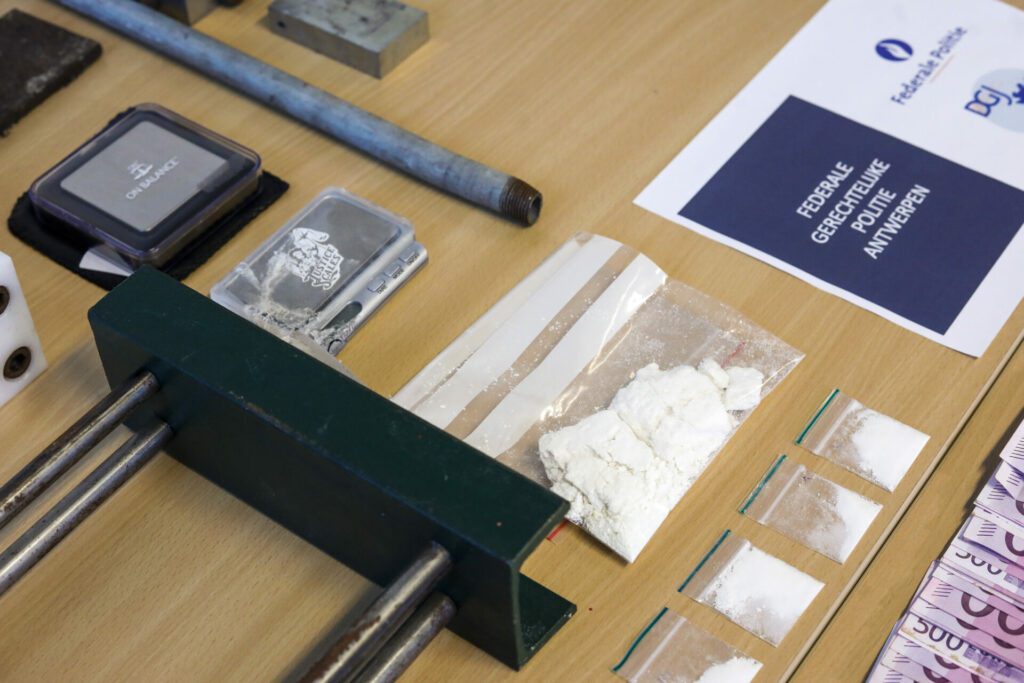An investigation by Belgian broadcaster RTBF into online illegal drug sales has revealed that consumers no longer have to enter the "dark web" to find sites that sell narcotics but that it can be done in much the same way as online shopping.
The results of the investigation show that in fact there are many sites which are freely accessible on the "classic" web providing a shopping experience much like regular retailers: online payments are possible via a QR code, some offer free delivery and in less than 24 hours if the order is placed before a certain time, and even the possibility of tracking the package.
The RTBF journalists carrying out the investigation accessed a site which described itself as "the specialist in the field of chemical research". But at no time were they asked to provide any proof that they were there to do any research.
Gathering the evidence
RTBF journalists created a profile and ordered 10 grams of a drug offered on the website, for an amount which they could pay by scanning a QR code. After choosing to have the delivery sent to the RTBF headquarters the whole process was completed in less than three minutes.
Two days later – rather than the 24-hours as promised – the package arrived at RTBF: a simple bubble-protected envelope consisting of a small sealed bag. The investigators then had the substance inside tested by experts and indeed, it was 10 grams of the ordered narcotic.
This kind of mail is usually intercepted by customs, especially if these are parcels sent from abroad and transiting through Belgium to return to another country. But customs tend to focus on heavy trafficking; the shipments of large quantities of drugs hidden by ingenious means.
For shipments to individuals, it is more complicated, admits the head of customs, Kristian Vanderwaeren in the RTBF report. "For us, the priority is the criminal networks. That's where you make a lot of money. We don’t have the ability to focus on very, very limited shipments. The seizures we make are 10,000 or 5,000 ecstasy pills, but not two, three or five at a time."
Since 2017, Belgian legislation on narcotics has expanded. It bans a whole series of drugs, but also all derivatives of certain chemical structures. This makes it possible to encompass most synthetic drugs, even if their "recipe" evolves slightly. This extension was made after Belgium experienced six deaths in six months due to synthetic drugs.
What the law says
Martin François, deputy and spokesperson at the Brussels prosecutor's office, told RTBF about the legal ramifications of online purchase: "The law and regulations prohibit their sale, possession, import, export, manufacture. Someone who orders illegal substances on a website faces two options in the eyes of the law: if the site is hosted in Belgium they will break the law as soon as they come into possession of these substances; if it's a foreign site, the person breaks the law from the moment the products enter Belgium."
For all illegal drugs (synthetic or not), penalties range from three months to five years in prison and a fine of €8,000 to €800,000.
Related News
- Two clandestine drug labs dismantled each month in Belgium
- 'Incredibly worried': Crack use in Brussels skyrockets
- Belgium in Brief: Carrots, sticks, and cocaine
If the website is hosted in Belgium, it is itself illegal. Foreign-hosted websites will depend on the legislation of the country. But this does not change much for the Belgian buyer, who commits an infringement regardless of where the site is located.
The RTBF investigation concluded when the reporters handed over the drugs at a police station and explained the context for their possession. The drugs were then recorded by the authorities and seized.

